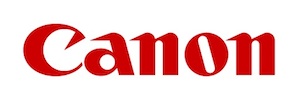Cary Sherburne: Hi, I’m Cary Sherburne, Senior Editor at WhatTheyThink, and I’m here with John Torrey, who is President and CEO of Ferrostaal. Welcome.
John Torrey: Yes, thank you very much for having me.
Cary Sherburne: And you know, and particularly for our North American audience, they may not be too familiar with Ferrostaal, so since you’re just really entering the North American market, tell us a little bit about the company.
John Torrey: Sure. Ferrostaal is a company that’s been in business for over 50 years. We’re a worldwide company that operates in 40 different countries. And one of the things we spend a lot of time doing is seeking out manufacturers that we feel will be a good blend for the print community. And graphics communication is our stable footprint for the world.
Cary Sherburne: And so one of those partners is Ryobi.
John Torrey: Yes. Ryobi is our leading partner. They’ve been around for 69 years. And Ryobi, I think the exciting thing for me, everybody asks, why Ryobi? Probably they’re the most financially stable company in our industry today. Now they rely on four flows of income, which is die-casting, the graphic systems division, which is making money today, their power tools, which everybody knows.
Cary Sherburne: Of course.
John Torrey: And finally the door jams that people don’t know about.
Cary Sherburne: Okay.
John Torrey: But the reason I like to share that and it's really important is the financial stability leads to research and development that has led to these technologies.
Cary Sherburne: Yes, absolutely. That’s great. And speaking of new technologies, they recently announced a partnership, well they’ve had a partnership with Miyakoshi for some time, but they recently announced a liquid toner, B2 sheet-fed press. Can you talk about that a little bit?
John Torrey: Yes. I can speak to it. At the show, the exciting part was that the B2 liquid toner from Ryobi Miyakoshi was introduced and ran at 8,000 sheets per hour at every demo. And what’s neat is there’s no make-ready. So your sheet’s ready to go as soon as you turn on the machine. And I think one of the things Ryobi’s out to accomplish is combining offset and digital. They have a paper trail path that allows the speed, to outperform competitors and their target is actually 10,000, but during the show everyone got to see a run at 8,000.
Cary Sherburne: Yeah. And so they’re actually using the platform, the paper handling system that’s been so successful for them in the offset market and then just replacing the imaging…
John Torrey: Yea, they are.
Cary Sherburne: …engines with liquid toner. That’s great. And the quality, people are happy with the quality?
John Torrey: The quality’s great. It's offset quality. Ryobi being a very conservation precision die-casting company wouldn’t allow people to walk away with printed samples. But they did walk by the booth and hold them up for everybody. And I think if you took a look at it, we had them in the Ryobi booth; we had samples, and they are running at 1,200 dpi.
Cary Sherburne: Oh, that’s great. Yeah, 'cause some of the other ones are a lower resolution than some of the other offerings. So, yeah, B2 sheet fed digital was a pretty big deal at Drupa. So you’re playing in that market; that’s great.
John Torrey: Yes. I think one of the big changes you’ll see as a result that I’ll throw on in the end is Ryobi plans to market it like an offset machine. Meaning, the customer will be able to purchase it and run it like they run traditional equipment.
Cary Sherburne: Without click charges.
John Torrey: Meaning – no, click charges, no consumable charges, no service charges. You’ll purchase it and then you’ll purchase your consumables and run your business.
Cary Sherburne: And that’ll be really attractive to a segment of the commercial printers out there, for sure. Well thank you very much.
John Torrey: Thank you.

 Official camera partner of WhatTheyThink and the drupa daily.
Official camera partner of WhatTheyThink and the drupa daily. 












